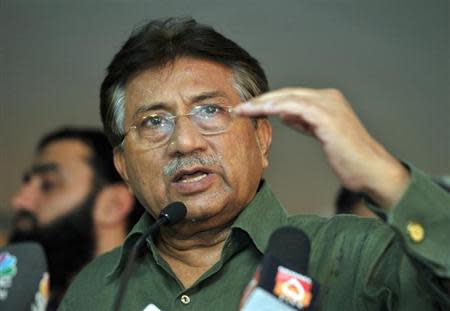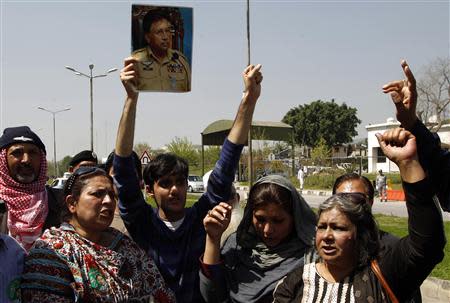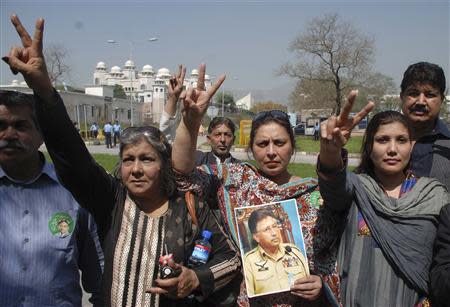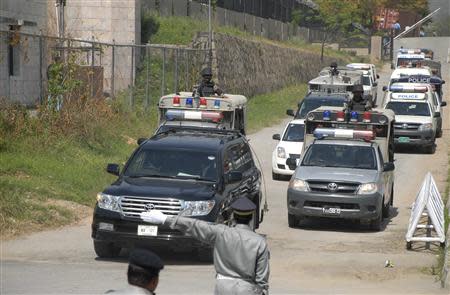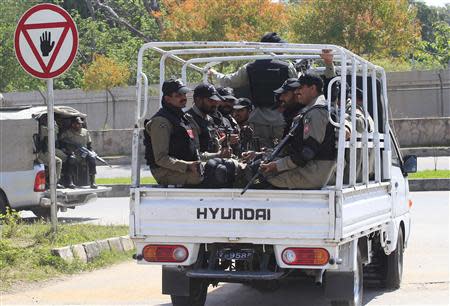Former Pakistani president Musharraf denies treason
By Syed Raza Hassan ISLAMABAD (Reuters) - Former Pakistani president Pervez Musharraf pleaded not guilty to five counts of treason on Monday in the latest chapter of a long-running drama between the increasingly assertive judiciary and its former military ruler. Musharraf faces the death penalty if convicted of charges over his suspension of the constitution and imposition of emergency rule in 2007, when he was trying to extend his tenure. The case marks the first time a former military officer of Musharraf's rank has appeared in court before a judge in a country where the military has rarely been challenged by either the government or the judiciary. "I would like to ask where is the justice for me in the Islamic republic of Pakistan ... I have only given to this country and not taken anything," Musharraf said. "I prefer death to surrender." Musharraf's lawyer sought permission for his client to visit his sick mother in Dubai. The former military ruler is under house arrest. "His mother is dying, for god's sake," Farough Naseem said. "She is 94 and very ill." But the court said it did not have the power to remove Musharraf's name from a federal government list of people prohibited from leaving the country. The progression of the case so far is a victory for the increasingly independent judiciary. Judges are increasingly challenging the fledgling civilian government, led by Prime Minister Nawaz Sharif, and even the powerful Pakistan military, which has ruled Pakistan for more than half its history since independence in 1947. Musharraf has warned the trial could anger the army, but military leaders have given no indication they might intervene. The former head of state has faced a battery of court cases since he returned home from exile last year, intending to contest May elections. Instead, he found himself charged in a series of murder and treason cases. He is on bail for all except the treason case, which has faced repeated delays since it began in December. First he refused to appear. Then a series of explosive devices was found to have been planted along his route. In January, he was taken to hospital when he suffered chest pains on the way to court. Musharraf's lawyers have challenged the court's jurisdiction, saying it was inherently biased because the judiciary had helped lead popular protests that led to his resignation in 2008. They argue that Musharraf cannot receive a fair trial under the government of Sharif, who won landslide elections a year ago. Musharraf deposed Sharif in a coup in 1999. Musharraf said his attempts to extend his rule were made in consultation with the cabinet and agreed to by the government. None of them is on trial with him, he pointed out. (Reporting by Syed Raza Hassan; Writing by Katharine Houreld; Editing by Clarence Fernandez and Nick Macfie)

